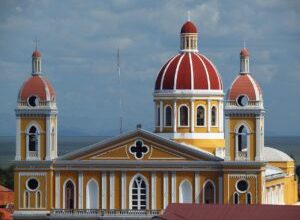Closer economic ties with Taiwan – 2

(Second of two parts)
An interesting opportunity arises for young Filipino workers in the countryside (they need not be children of farmers) to partner with highly skilled Taiwanese fruit farmers in developing fruit orchards, using Taiwanese varieties grafted into Philippine rootstocks.
The Philippine private sector, with the appropriate assistance from the Department of Agriculture, should capitalize on the avowed New Southbound Policy of the Taiwanese Government to link up fruit farmers associations in Taiwan and their appropriate counterparts among Filipino farmers and other business associations. These initiatives can arise among enlightened LGU heads in key agricultural regions of the Philippines, especially in those areas where there are already significant fruit growing enterprises such in Negros Occidental, Zambales, Pangasinan, in numerous provinces in Mindanao, in the Calabarzon area, in the Bicol region, etc. With a population of some 112 million people transitioning to an upper-middle income economy any time soon, and the expected strong recovery of both domestic and foreign tourism, there will be ready markets for high quality fruits.
Harbest Agribusiness Corp.’s Arsenio Barcelona suggests confidence building activities such as exchange visits of Filipino and Taiwanese farmers to existing farms and farmers associations. These can be associations of friends seriously interested in developing opportunities in the growing of orchards. Small batches of five to 10 farmers from each side can be invited for educational tours of existing farms. Social media can be used to put focal persons from each side in contact with one another, with pictures of individual farms posted on Messenger and Facebook groups. This type of exchange can be started in the mango industry. Taiwanese mango farmers can visit Filipino mango farms, markets, processors, and even restaurants. Likewise, selected Filipino farmers can make reciprocal visits to Taiwanese mango farms and see for themselves the big difference and understand why Taiwanese farms are a lot better in many ways.
Coming from the province of Negros Occidental himself, Mr. Barcelona suggests that his home province could spearhead this initiative. He cites the fact that Bacolod City has a good number of Filipino-Chinese families, with many of their members involved as influential leaders of the business community. There are three prestigious schools owned and operated by Filipino Chinese, i.e., Tay Tung, St. John’s, and Trinity. Taiwanese and Filipino-Chinese have established Buddhist and Taoist temples readily available for the visitors to attend. Fookien speakers in Negros Occidental are numerous enough for the Taiwanese farmers to feel at home, also facilitated by readily accessible internet, smart phones lines, and cable TV showing Chinese channels.
It is up to the local government, working closely with the business community, to make the Taiwanese farmer investors welcome the moment they decide to come. Preparation of travel papers and local contacts should be facilitated. Information on schools, temples, food sources, Chinese channels on cable, home rentals, investment policies, banking facilities, and household personnel can already be provided through the internet. A local person can handle the social media preparation. Likewise, a Taiwanese counterpart can be assigned. A group of Taiwanese farmers already visited the province of Negros Occidental to pursue this initiative in 2019, just before the pandemic. For obvious reasons, negotiations failed to prosper in the last two years. Resumption of contacts is expected as the whole region recovers from the impact of the pandemic. Hopefully, the Negros Occidental model can be quickly replicated in other fruit-growing provinces of the Philippines.
It is also in the province of Negros Occidental where the training of young farmers, using Taiwanese agribusiness technology, is being piloted for possible replication in many other provinces.
The Ming Yuan Catholic Agricultural College is situated in the upland town of Murcia, Negros Occidental. The Montelibano family donated some 14 hectares of land for a school campus and training farm. During the last 15 years, a half blind Benedictine monk from Taiwan established a school to train children of poor farmers in the growing of high-value crops using Taiwanese technology. The founder, Fr. Su, has been succeeded by a younger priest, Fr. Wang, who has brought enrollment up to 1,000 students. They are being trained to produce quality vegetables, short-gestating fruits like papayas, chicken for eggs and meat, hogs for meat, goats and carabaos for milk and meat, and animal feeds crops for livestock growing.
Harbest Agribusiness Corp. has decided to partner with the Min Yuan College by introducing the famous dualvoc system, perfected in some European countries, in which skills training is undertaken through a curriculum combining classroom teaching with hands-on, on-the-job training in cooperating enterprises. Expert gardeners from Harbest will assist assigned trainors from Ming Yuan to evaluate and plan out the training field into a one-semester on-the-job classroom. The trainors will first be trained, then the young farmers-to-be. Next will be the parents of the young farmers. The goal is always to ensure that each small farm will turn out to be profitable.
A two-hectare training field will be utilized. This will be subdivided into lots of 200 sq.m. each. Each trainee will be assigned a plot on which to apply whatever is learned in the classroom. The training will last for one season, with 12 weekly training sessions. Farm mechanization will be introduced, with equipment to be provided by Harbest. Each season will be long enough to cover seed sowing to harvest. The farm inputs will be non-toxic, and natural farming technology will be used. There will be a centralized water transport system from a solar deep-well pump. There will be 80 training plots for commercial farming of leafy vegetables, fruiting vegetables, melons, papayas, bananas, culinary and medical herbs, root crops, beans, azolla (duckweed), and other crops for the feed of chickens, pigs, ducks, goats, and cattle.
The Office of Agriculture of the Local Government Units (LGUs) will be invited to send trainors who will be incorporated into the one-semester training module. The appointed trainors of Ming Yuan, as well as those of the participating LGUs, will be required to manage their own assigned plots and designated crops. All the trainees will have an opportunity to be exposed to all the crops planted in the fields. Ming Yuan, with the assistance of the other participating agencies, will document all the training procedures so that they can have permanent teaching materials for future training programs which they can sustain for their own farming communities. At the appropriate time, Ming Yuan should endeavor to have the training program accredited with TESDA (Technical Education and Skills Development Authority) and the Department of Agriculture so that these two government agencies can be the source of funding for the expansion and improvement of the training program to other farming communities.
The Ming Yuan Catholic College initiative is yet another example of a partnership between Taiwan and the Philippines at the grass roots level. As President Ferdinand Marcos, Jr. has committed his government to continue to focus on building farm-to-market roads, irrigation systems, post-harvest facilities, and other hard infrastructures to improve the productivity of small farmers, there is a distinct role of both business and civil society (as represented here by Harbest and Ming Yuan College) to provide the software of technology and training to make sure that the farmers will have the know-how and the necessary values to take full advantage of the improved infrastructure.
Bernardo M. Villegas has a Ph.D. in Economics from Harvard, is professor emeritus at the University of Asia and the Pacific, and a visiting professor at the IESE Business School in Barcelona, Spain. He was a member of the 1986 Constitutional Commission.



